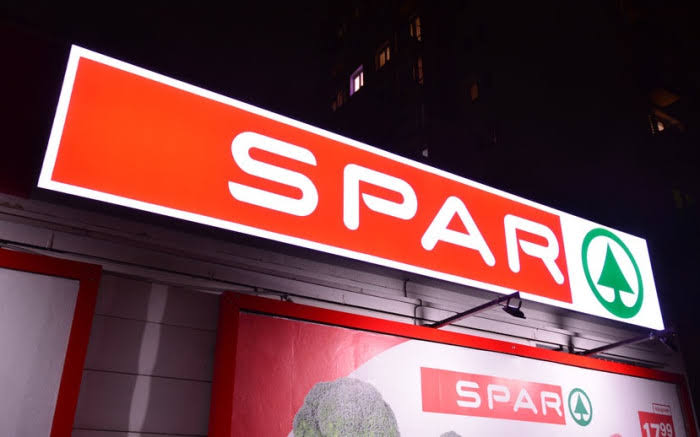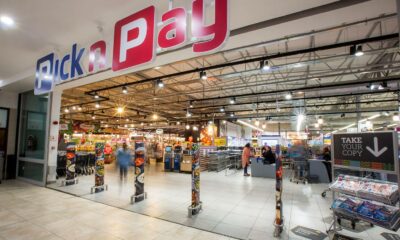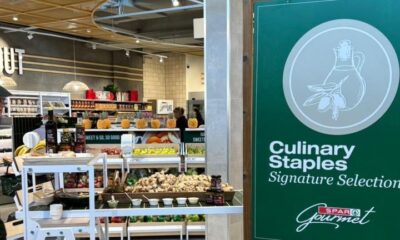Business
From Expansion to Retrenchment: Why Spar Is Shutting Stores in Gauteng

The local grocery giant tightens its belt after a R4 billion blow, focusing on home turf amid retail turbulence
South Africans may soon be noticing fewer SPAR stores in their neighbourhoods especially in Gauteng. The grocery and liquor retail group is quietly trimming its store count in the province, part of a broader strategy to recover from a bruising R4 billion interim loss and exit shaky overseas markets.
It’s a sobering development for one of the country’s most recognised supermarket brands, and it raises bigger questions about the health of the retail sector and how much more “rightsizing” is to come.
What’s Behind the Closures?
At the heart of this shift is a painful rethink of global strategy. SPAR’s troubles began in Europe, where a costly retreat from Poland and ongoing losses in Switzerland and the UK have left a deep financial scar. Combined, the European operations posted post-tax losses of R4.4 billion, including impairments of R4.2 billion.
The result? A renewed focus on SPAR’s more reliable markets in Southern Africa, where despite tough economic conditions, the business still shows signs of life.
But even back home, the going hasn’t been easy. The company says flat food inflation, post-election unrest in Mozambique, and shifting holiday patterns have all dragged on performance. And then there’s the competition—fierce and growing, as rivals like Boxer continue to expand aggressively.
Gauteng Takes the Hit
From September 2024 to March 2025, SPAR closed a net total of five stores across its Southern African operations. Zooming in on the 2025 calendar year alone, the number rises to nine. While not all of these were in Gauteng, the company confirmed store closures in the province specifically affected its local growth trajectory.
That’s significant, considering Gauteng’s dense urban centres represent the beating heart of South African consumer activity. The province is both a key revenue driver and a hyper-competitive space, where even well-established retailers can struggle to maintain profit margins.
SPAR has been vague about which types of stores were shuttered, but signs suggest the group is prioritising growth formats like SaveMor and SPAR Express. Its liquor arm, Tops! remains robust, with 935 outlets still trading as of March 2025.
More Stores, But Not Necessarily More Profit
Interestingly, South Africa’s retail scene isn’t short of new stores. In fact, quite the opposite.
The country’s top five retailers opened more than 700 stores last year alone. Boxer, the budget chain spun off by Pick n Pay in 2024, has become the poster child of this expansion frenzy. It added 48 new stores in just one year, growing its total footprint to 525 outlets and boosting gross lettable area by 9%.
Yet not everyone is convinced this is the way forward.
Pick n Pay’s CEO Sean Summers recently warned that South Africa might be opening too many stores, with questionable return on investment. In other words, new shops don’t automatically mean new profits—especially when consumer spending is under pressure.
Spar, it seems, has taken this advice to heart.
‘Rightsizing’ in a Recessionary Reality
South African shoppers know all too well the pinch of rising costs, shrinking baskets, and power cuts that make refrigeration and stocking a nightmare for store owners.
SPAR’s decision to consolidate rather than blindly expand may reflect a more cautious, perhaps wiser approach to the retail environment in 2025. The group is also reinvesting in its current footprint, with 84 refurbishments underway at a cost of R211 million, indicating that it hasn’t lost faith in the local market—it’s just choosing to bet smarter.
Net retail space is still on the rise, reaching about 1.39 million square metres in January 2025.
What It Means for You
If your local SPAR suddenly disappears, it’s not just about rent or foot traffic it’s part of a bigger survival game playing out in boardrooms and balance sheets.
While the closures may seem like a setback, they also signal a commitment to consolidating strongholds and protecting jobs where the business remains viable.
So next time you shop at a Spar, take a second look around. That newly painted aisle or updated store layout? It might just be the future of South African retail.
SPAR isn’t disappearing, it’s regrouping. And in a market as unforgiving as ours, that may be the smartest move a grocer can make.
{Source: IOL}
Follow Joburg ETC on Facebook, Twitter , TikTok and Instagram
For more News in Johannesburg, visit joburgetc.com



























